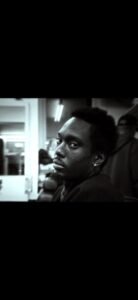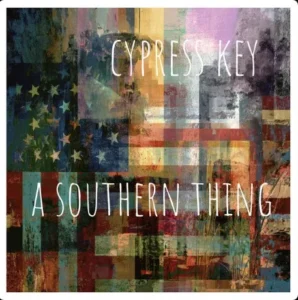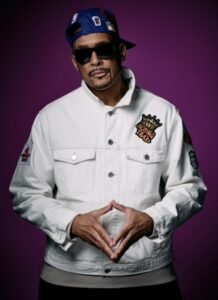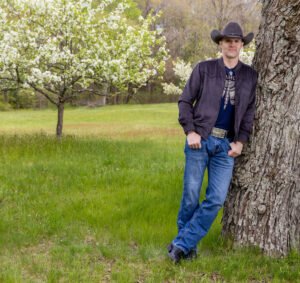Daymond John: From FUBU Founder to Global Entrepreneur and Presidential Ambassador
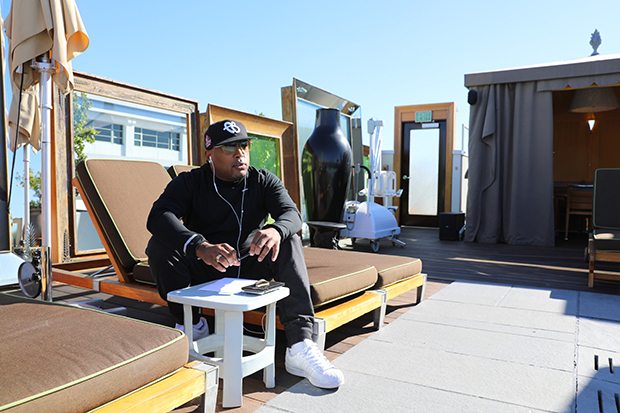
The 80s were the beginning of the wave of entrepreneurship in the United States. It was the right time to strike in various industries, including entertainment, technology, marketing, sports, and aerospace. Entrepreneurship was all about individuals starting with nothing and building their own niche, turning small businesses into international conglomerates. This was the era that brought us FUBU. In the late 80s, Daymond began his global company in his mother’s basement while working at Red Lobster.
Growing up on the streets of Hollis, Queens, New York, Daymond John learned to sew from his mother, a skill typically used for mending clothing. He instead utilized this essential ability to craft wool hats with the tops tied off. A technique that Daymond applied after noticing that hats of this type were being sold on the street for $20. This was the beginning of Daymond’s merchandise, which he sold for half the price of his competitors. He and his business partner reinvested all proceeds from the wool hats back into the business and started selling t-shirts on consignment at events around the city. His mother was his first investor, using their home as collateral for his clothing line. One of the lessons Daymond learned while building his business was “know your numbers and financials! That way you do not go out and spend money foolishly on things that you don’t need. “
Over several years, Daymond worked hard utilizing rising stars such as LL Cool J and others in his brand campaign, which ultimately led to FUBU was known throughout the world as “For Us By US.” In 2009, John became a household name via Shark Tank, a show featuring other startup entrepreneurs. He also authored books in the hope of mentoring the next generation, explaining that he wanted to “share the knowledge I have gained from others around me.”
Daymond has now come full circle, allowing others to make their dreams a reality with the help of investors, just as his mother did for him. He has won awards and recognition from several organizations, such as Crain’s New York Business Forty Under Forty Award, Ernst & Young’s New York Entrepreneur of the Year Award, the Advertising Age Marketing 1000 Award for Outstanding Ad Campaign, and the Presidential Ambassadors for Global Entrepreneurship. When he first heard that Former President Barack Obama was appointing him a Presidential Ambassador for Global Entrepreneurship, “it was an honor, and I was shell-shocked. Had I not had the opportunity to meet him once or twice before casually, I would’ve said “you are full of s*** and he doesn’t even know who I am. It was cool!”
Your last book, Power of Broke became a New York Times Bestseller. In January, you will release “Rise and Grind,” the follow-up book. Why do you feel it is vital to delivering your message through books?
The reason I write books is that I believe people’s attention spans are limited, and there is a lot of information online. However, I feel that print will be around forever in its physical form. I also think that releasing the book itself allows me to share the knowledge I’ve gained from those around me. This presents me with the opportunity to address the top 10 to 20 questions that inspiring entrepreneurs always ask me. There is no single place where you can find all these answers on entrepreneurship, and that’s why I feel it’s essential to deliver my messages through books.
“No one in the world is holding back the ultimate answer to success. We write these books to show other individuals different ways to take that journey, but it is ultimately up to you.”
You have been very public about dyslexia. What does it mean to you to have now written five books? Symbolically, do you see these books as a challenge to your fight?
It’s kind of funny, someone who has dyslexia writing books, but there have been so many individuals like me who have done the same. Albert Einstein was dyslexic, and it’s not as though people think those who have it can’t read; it just takes us longer to process information. So, when I proofread my book compared to you proofreading yours, it will take you two days, but it will take me eight days. I usually review my material four times to ensure that my writer and I have written the content accurately.
This is the same process that you would do in any other industry that you want to be successful in. If you’re going to take on a task, you’ll make sure everything is perfect. That is why people who have dyslexia want to outwork everyone because they know their weakness and are willing to work double time to achieve their goals.
The Power of Broke had a unique presentation and was very anecdotal with celebrities and leaders of industry. Will Rise and Grind be similar? Also, why did you choose that approach instead of your typical first-person biography?
The reason I took this approach, compared to the first-person biography, is that it allows the reader to gain multiple perspectives from a collection of fifteen well-known individuals who work in various industries. Even though everyone is in a different sector, there are standard techniques they use, and that’s what I’m trying to showcase in these books. The last book had a theory, “You don’t need money to make money,” that was like giving a cooking lesson. This next book will provide you with the recipe of what people implement every day to be successful.
If teenage Daymond John was just getting started in 2017, what advice would the current you give the “youthful you” to get started in today’s day and age? And how similar is that information to the help you are providing current entrepreneurs throughout the country?
Know your numbers and finances! That way, you do not go out and spend money foolishly on things that you don’t need. The whole purpose of business is to make a profit and to grow it, but if you’re spending your finances on things you don’t need, your venture will fail. So, the first advice I would share is to know your business and numbers. Next, research your market before spending any money for the first six months to a year, as you’re starting your small business. Do your diligence. Take classes if you are financially equipped. If that’s not an option, seek out an internship or work somewhere for free. I would also advise individuals to spend two to three hours online examining information and building a community. Make sure you spend time learning your craft, but not too much time or money. After that, find a mentor if you can’t locate someone in your specific occupation; seek out an individual who can teach you the basic concepts and fundamentals. Finally, build a team around you of like-minded individuals who share similar goals and understand their strengths within the company.
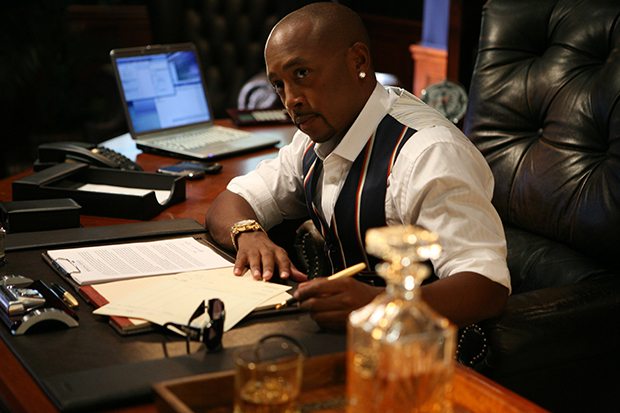
We hear so much on Shark Tank about “the numbers.” Beyond the numbers, what are those secret ingredients you look for when investing in a partner or company?
When I look to partner with a company, I focus on the founder or the individuals running the business. I also look to see if they have experience and if you are a problem solver. Next, I pay attention to whether the company has the growth potential and whether the leadership can take it to the next level. Finally, I look at the numbers, you can be conducting a lot of business transactions, but not seeing a return on your investment.
You have always said you are goal-driven. Let’s play a game. Name one goal you have in the following timeframe:
What is a goal you would like to achieve in the next six months?
There is a specific weight class that I want to get down to and maintain. Another goal would be to determine the number of hours I put into ensuring “Rise and Grind’ reaches the right individuals when it is released. The next goal would be to increase my efforts in ensuring people are aware of the early detection of ailments and suggesting proper treatments before their condition becomes critical. I also have a goal of spending a certain amount of time with my family. Finally, I have goals I want to achieve in business, such as a certain number of sales on a quarterly or yearly basis. All my goals vary in different areas, but they all have a specific end date, and then I reset them.
This Time Next Year?
My goal every year is to help position my Shark Tank companies to increase their revenue. I am currently in California shooting episodes for the show. My goals will reset, whether that involves donating a certain amount of dollars towards the relief efforts for Hurricane Harvey and Irma. Those will all be different goals that I plan on setting for myself over the next year, but every year I have Shark Tank on my goals because business owners allow me to be a part of their dreams when I invest funds into their companies’ year after year.
In an interview with CNN Money, you talked about having two long-term goals that will expire in 10 and 20 years. Do those long-term goals factor in changing economies and political climates, or are you focused and resolved to succeed no matter the situation?
No! My five-year goals are generally business-oriented, focusing on scaling my business or downsizing specific companies that I have assessed and might not want to be a part of anymore. The ten-year goals are typically dedicated to philanthropy in the fight against human trafficking, animal extinction, and global relief efforts. Finally, since we don’t know where we will be in that time frame, my twenty-year goal is to envision doing business with the new technology that will be available to us, and where it might be. I will also have to picture what my family will look like in that period, and if I’m leaving an inheritance or a legacy.
When you first heard that former president Barack Obama was appointing you as the Ambassador of Global Entrepreneurship. What did that mean to you personally?
First, I wouldn’t have believed it, but I first met Senator Obama at the time. When he decided to run for president, he said to me, “Oh My God one of the great entrepreneurs of our day. I looked around, as if I didn’t know who he was talking about, and didn’t think he was talking to me. I think some of the greatest entrepreneurs of our time are Henry Ford and Steve Jobs.”
I know he had a great admiration for me, and he has used the “For Us by Us” slogan several times in his speeches, so I know that he understood. So, I said to myself, what can I bring to the table for such a great leader, who I think is one of the most outstanding leaders that has ever existed in our modern day? Thus, it was an honor, and I was shell-shocked.
If I had not had the opportunity to meet him once or twice before casually, I would’ve said, “you are full of s***, and he doesn’t even know who I am. It was cool.”
Have you and the other four dyslexic sharks thought about creating a scholarship program? And talk more about your work with Yale.
We have never talked about it because we all have a lot of different passions and drives that we’ve already devoted ourselves to. As we all know, opening foundations or scholarship funds is a very sensitive profession because one dishonest person in the organization can do something that is not in the best interest of the association. This can cause a chain reaction and collapse the entire integrity of the organization. It is always best that we work with institutions like Yale and other established organizations that have a proven track record. I would rather concentrate on a hundred different organizations in comparison to just one of mine.
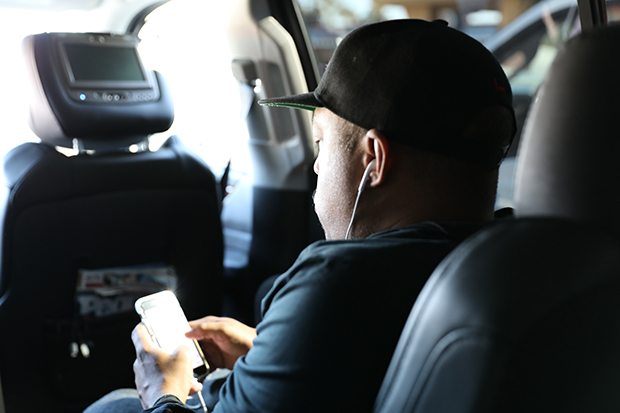
I see you on Instagram running on the beach or in the car, late at night traveling to a new city. I know music is a part of your journey. What are a few go-to songs on your playlist?
All film scores are like Bill Conti, who does all the Rocky films. Other artists on my playlist include Run-DMC, DMX, Tupac, Biggie, Lionel Richie, Bob Marley, the Commodores, and Prince. Bob Marley and Prince are my two all-time favorite artists.
Are there any new products that we can expect from any of your companies in line with the three-year plan?
I have developed a new product called Blueprint and Co., and it’s a creative workspace where you can work alongside like-minded entrepreneurs all day long at a satellite office designed for sharks. So, say you have an office of a thousand people in California, but you need to go to New York. Where are you going to work, Starbucks or a hotel room? If you have a membership in this community, you can work next to other CEOs and their teams from different locations around the world. I am also creating an educational-based program called “Daymond On Demand.” It is a platform for my books. It is an interactive program that consists of eight hours of digital curriculum. Like an app, it will receive updates and new content.
If you were going to participate in the show Undercover Boss, which one of your companies would you target and why?
I never really understood how Undercover Boss worked, because you have to own a company with 500 to 10,000 employees. I don’t own any companies with that volume of employees, and that’s how the concept of the show works. The reason why I don’t have any businesses that size is that you don’t know any of your employees. On the other hand, if someone else were there participating and I could talk to them through an earpiece, I would say my “FUBU Mobile Company.” I would like to see how they treat customers every day in the stores.





